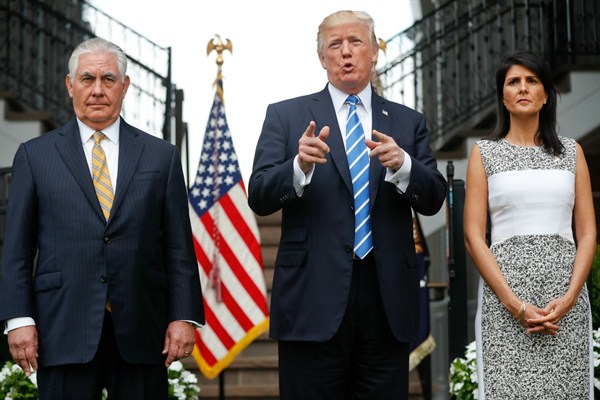These are difficult days for U.S. diplomacy. In the two biggest global challenges, North Korea and Syria, the United States hasn’t had any easy successes lately. When President Donald Trump has decided to lead, as on the smaller, intra-Arab showdown in the Gulf, the parties paid only the briefest respect for his effort and then resumed their feud. Meanwhile, Secretary of State Rex Tillerson’s attempts to reform the State Department—some of them credible and desirable—could reduce its capacity to represent American leadership around the world.
If there was any doubt about America’s reduced global standing, the North Korean crisis provides some troubling evidence. In the back and forth between Trump’s public threats and Tillerson’s more discreet efforts to cajole China, North Korea is happily defying the pressure and pursuing its strategic goals. The U.S. ambassador to the United Nations, Nikki Haley, has taken the Trump approach, accusing the North Koreans of “begging for war.” But she may find it hard to win consensus for new U.N. sanctions, since Russia and China have their own strategies for dealing with Pyongyang.
Half a world away, the Gulf Arabs are still locked in an internecine struggle that pits the feisty, gas-rich and independent Qatar against regional heavyweights Saudi Arabia and the United Arab Emirates. Late last week, Trump hosted the emir of Kuwait, who has been the designated mediator but has little to show for it. Trump decided to take the reins, announcing at their joint press conference at the White House that he would wrap up a deal among the parties quickly. That meant a few phone calls to the leaders on Friday, which Doha, Riyadh and Abu Dhabi acknowledged—before they promptly started their finger-pointing and accusations again. Trump keeps expecting easy wins, and they just don’t happen.

